Concept and Organization
Belvedere Research Center
Project lead:
Christian Huemer, PhD (Director Belvedere Research Center)
Scientific project coordination:
Dr. Johanna Aufreiter
Alexandra Sommer, MA
University for Continuing Education in Krems, Department for Arts and Cultural Studies, Center for Image Science
Project lead since July 2022:
Dr. Viola Rühse (Head of Center for Image Science)
Scientific project coordination:
Dr. Nicole Alber
Organizational assistant:
Mag. Martina Schmied
Web administration:
Max Resch, BSc
Former staff members
University for Continuing Education in Krems, Department for Arts and Cultural Studies, Center for Image Science
Project lead until June 2022:
Univ.-Prof. a.D. Dr. habil. Dr. hc Oliver Grau, MAE
Research assistants:
Mag. Laura Ettel
Alexander Wöran, MA BSc BA
Dr. Hannah Bruckmüller
Organizational assistant:
Cornelia Zierlinger
Belvedere Research Center
Elena Krizmanics, MLitt
Lecturers
PD Mag. Dr. Gunther Reisinger (NOUS digital / Graz University of Technology)
Gunther Reisinger studied art history and musicology in Graz and Karlsruhe. Dissertation on the topic of digital source studies in the humanities (2006, KFU Graz), habilitation thesis on the concept of work in artist manifestos of the historical avant-garde (2017, TU Graz). Teaching assignments and professorships at KFU Graz, HGB Leipzig, Akademie der Bildenden Künste Stuttgart, Kunsthochschule Burg Giebichenstein Halle or Humboldt-Universität zu Berlin: since 2017 private lecturer at TU Graz and since 2019 project developer and project manager at NOUS digital Vienna.
His focus is on digital source studies and theoretical and practical questions on the interplay of digital innovation with museological methods: project management in the field of digital transformation of cultural institutions and museums (e.g. Jewish Museum Berlin, House of History Baden-Württemberg, EU consortial projects), showcases for NOUS Sonic (location-based 3D audio) at Konzerthaus Vienna, Austrian Cultural Forum New York and Governors Island New York.
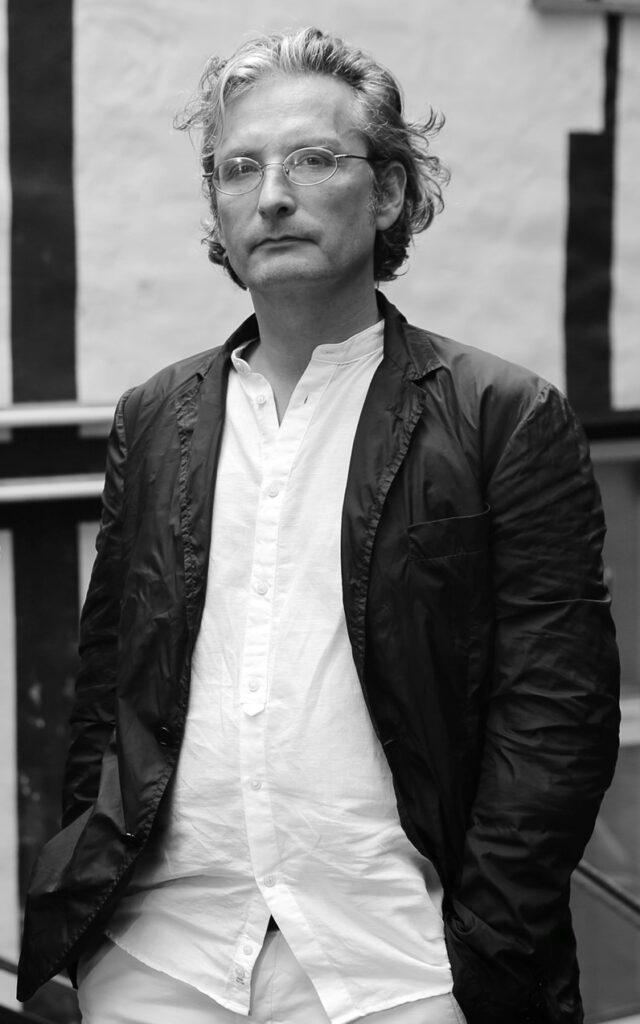

Prof. Dr. Michel Pfeiffer (Swiss Institute for Information Science, University of Applied Sciences Graubünden)
Michel Pfeiffer is a lecturer at the Swiss Institute for Information Science at the University of Applied Sciences Graubünden (FHGR) in Chur, Switzerland. There he heads the digitization lab with the aim of transmedializing photography and audiovisual media in an archivally appropriate way. His current research questions deal with the digitization, preservation and mediation of cultural assets, especially object and metadata in the field of tension between libraries, archives and museums.
Michel Pfeiffer is an expert in digital collection management. His broad practical experience and profound theoretical knowledge enable him to analyze complex archival issues, develop and implement individual solutions. As a self-employed photographer, he was already confronted with the digitization of photographs in the early 1990s. Disappointed by the digital reproduction possibilities of the time, he became intensively involved with digitization and its quality criteria. Driven by the idea of implementing optimal processes, he built up various image databases, first for his own company, later for customers.
Today, he is a lecturer in Information Science at the FHGR (University of Applied Sciences Graubünden) in Switzerland. He teaches various topics such as: Fundamentals of Digitization, International Digitization Standards, Image Indexing, Content Mediation in Digital Asset Management Systems and the Life Cycle of Digital Preservation.
Prof. Monika Hagedorn-Saupe (Representative of the Prussian Cultural Heritage Foundation’s President)
Monika Hagedorn-Saupe studied education, sociology, psychology with a focus on adult education, as well as mathematics, at the Ruhr University Bochum, Kings College London and the Free University Berlin. After many years as deputy director of the Institute for Museum Research, she still represents the Prussian Cultural Heritage Foundation in European and international committees. She is President of the Deutsche Gesellschaft für Information & Wissen e.V. (DGI), a member of the European expert group CEDCHE (Expert Group on a common European Data Space for Cultural Heritage) and Vice President of the Michael Culture Association. Since 2006, she has been an honorary professor in the Museology programme at the HTW Berlin and teaches “Terminology” in the field of documentation. She is also responsible for the development of a German-language version of the Getty Research Institute’s AAT (Art and Architecture Thesaurus).
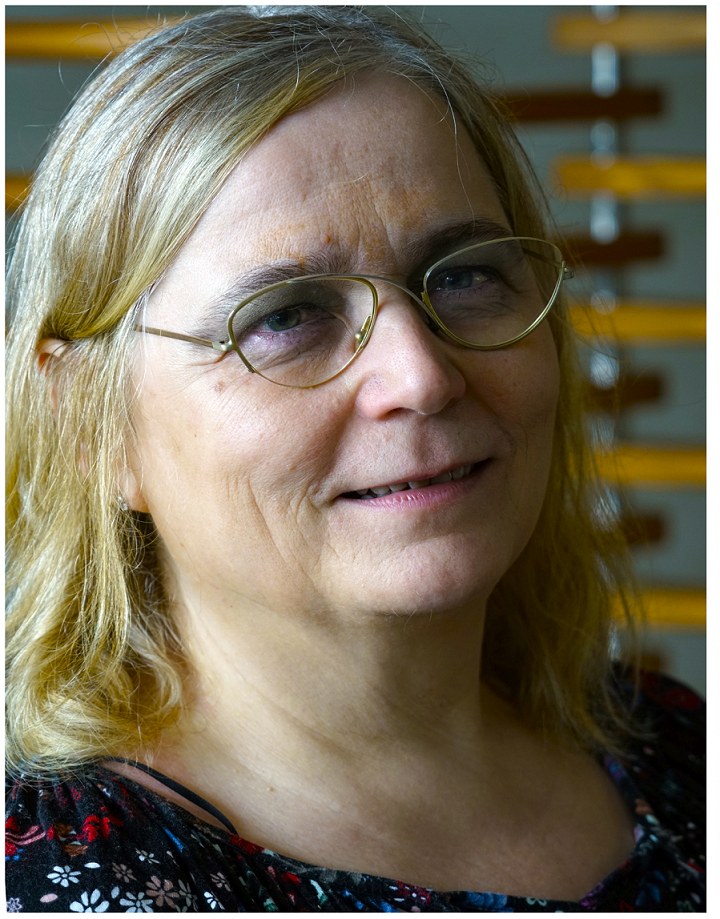

Dipl.-Soz. Axel Ermert (Deutsche Gesellschaft für Information und Wissen e.V. (DGI) – AKTS)
Axel Ermert studied sociology and information science in Berlin. From 1978 to 1994 he was a full-time employee at DIN Deutsches Institut für Normung (national and international standardisation committees in the field of documentation and terminology). He also worked as a lecturer. From 1998 to 2018, he worked at the Institute for Museum Research – SMB/PK in Berlin. He is interested in the overall view of the information field, from (printed) books to film and television, and specifically in the principles of terminology and carefully elaborated individual terminologies such as that of the information field or classification systems.
Dominic Oldman, MA (ResearchSpace, British Museum, London)
Dominic Oldman has over 28 years of experience of managing, researching and developing cultural heritage and humanities systems with a focus on underlying historical research methods, and is a historical researcher. He was Deputy Head of, and then led, the Information Systems department at the British Museum before concentrating full time on the ResearchSpace project as principal investigator. The project has delivered a practical community platform used in universities and cultural heritage organisations for representing history and historical sources with richer data narratives, resolving the dialectic of quantitative and qualitative methods, and addressing the issue of reductive databases by addressing complexity in data using knowledge representation – a specialisation within Artificial Intelligence (AI). He is currently researching a history of computing from an humanities perspective to inform digital research methods, the effective use of computers by historians, and to support a practitioner-researcher approach in cultural heritage organisations. He is a bachelor of law, and passed the Solicitor’s Final exams before joining the Scientific Research department at the British Museum. He has a masters degree from King’s College, London and is currently a research student at the University of Oxford in the Faculty of History.


Cristina Giancristofaro (Director of Kartography CIC, London)
Cristina Giancristofaro is a Conservation Scientist with applied knowledge in the development of Information Systems for Cultural Heritage. She joined the ResearchSpace team in 2018, working on the development, design and implementation of the platform. She previously worked at the INFN Physics Department in Florence and the ENEA Research Centre in Rome, developing expertise in the synthesis of nanocomposites for conservative treatment of artistic stones and non-invasive analysis of paintings, such as PIXE, PIGE, SEM, Ionoluminescence, Laser Induced Fluorescence, scanning IR Reflectography and Multispectral Imaging. In 2013 she obtained a Master of Science Unesco in Open Source Technologies for Cultural Heritage, developing new skills in database development, GIS, web programming and specialising in 3D Photogrammetry Image-Based Modeling survey, 3D model visualisation and integration with imaging diagnostic researches. Before joining the ResearchSpace project she has been an IPERION-CH research fellow in the Scientific dept of the National Gallery in London, mainly working on digital documentation for the construction of a database of ground layers in paintings as an open access research resource. She is currently a Director of Kartography CIC, a social enterprise company concerned with data diversity, inclusion and context.
Prof. Ross Parry (Director of the Institute for Digital Culture, University of Leicester)
A former Tate Research Fellow, and the former Chair of the United Kingdom’s National Museums Computer Group, Ross is also one of the founding Trustees of the Jodi Mattes Trust for accessible digital culture. He is a Principal Fellow of the Higher Education Academy, and has appeared on the Education Foundation’s ‘Edtech 50’ (supported by the UK government) as one of the fifty most influential people in the education and technology sectors.
A widely-read author, Ross’s books include ‘Recoding the Museum: Digital Heritage and the Technologies of Change’ (Routledge, 2007), ‘Museums in a Digital Age’ (editor, Routledge, 2009), ‘Museum Thresholds: The Design and Media of Arrival’ (co-edited with Ruth Page, Routledge, 2018), and, most recently, ‘The Routledge Handbook of Museums, Media and Communication’ (co-edited with Kirsten Drotner, Vince Dziekan and Kim Schroder, Routledge, 2019). He is also co-editor of a newly-launched book series with Routledge – ‘Critical Perspectives on Museums and Digital Technology’.
Ross sits on the Steering Committee of the UK’s £18mn ‘Towards a National Collection’ programme, funded by UKRI. And is co-investigator of ‘The Sensational Museum’, a two-year, multi-partner £1mn research initiative – ‘using what we know about disability to change how museums work for everyone’. Since 2017, he has been leading the ‘One by One’ initiative, a major Arts and Humanities Research Council-funded research project, involving national governmental and professional bodies in the UK and US, that is focused on developing digitally confident museums.


Prof. Dr. Sarah Kenderdine (École Polytechnique Fédérale de Lausanne)
Sarah Kenderdine researches at the forefront of interactive and immersive experiences for galleries, libraries, archives and museums. In widely exhibited installation works, she has amalgamated tangible and intangible cultural heritage with new media art practice, especially in the realms of interactive cinema, augmented reality and embodied narrative. Sarah has produced 90 exhibitions and installations for museums worldwide including a museum complex in India and one in Taiwan and received a number of major international awards for this work. In 2017, Sarah was appointed professor at the École Polytechnique fédérale de Lausanne (EPFL), Switzerland where she has built the Laboratory for Experimental Museology (eM+), exploring the convergence of cultural heritage, imaging technologies, immersive visualisation, digital aesthetics and cultural (big) data. Since 2017, Sarah is director and lead curator of EPFL Pavilions a new art/science initiative. In 2020, she was named in the Museum Influencer List 2020 – The Power 10 by Blooloop and, Switzerland’s Top 100 Digital Shapers by Bilanz in 2020 and 2021. In 2021, Sarah was appointed corresponding fellow of The British Academy.
Christian Huemer, PhD (Österreichische Galerie Belvedere)
Christian Huemer is director of the Belvedere Research Centre. He studied art history in Vienna, Paris, and New York, where he wrote his doctoral thesis on Paris – Vienna: Modern Art Markets and the Transmission of Culture (1873-1937). Curatorial internships at the Solomon R. Guggenheim Museum and the Museum of Modern Art in New York. He has held teaching positions at Hunter College in New York, Sotheby’s Institute of Art in Los Angeles, and the University of Vienna, among others. From 2008 to 2017, Christian Huemer was responsible for the further development of the Getty Provenance Index® databases. In this context, he organized research projects such as “Markets and Power: The German Art Trade in the »Third Reich«” (publication 2017) or “London and the Emergence of a European Art Market, 1780-1820” (publication 2019). Editor-in-chief of the book series Studies in the History of Collecting & Art Markets and Managing Editor of the Belvedere Research Journal. Chairman of DArtHist Austria – Network for Digital Art History in Austria.


Dr. Johanna Aufreiter (Österreichische Galerie Belvedere)
Johanna Aufreiter has been a research associate at the Belvedere Research Centre since 2018. She is a member of the conference committee of the annual Belvedere conference “The Art Museum in the Digital Age” and co-editor of the Belvedere Research Journal. Johanna Aufreiter studied German philology and art history at the University of Graz. From 2006 to 2013 she worked as a lecturer and university assistant at the Institute of Art History at the University of Graz. In 2013 she moved to the University of Vienna, where she worked as a university assistant and head of the Laboratory for Cognitive Research in Art History at the Institute of Art History until 2017. In 2017, she completed her doctorate on the topic of optical theories in the Middle Ages. Her main research interests are optical theories, empirical image science, digital art history and medieval art. In addition to her teaching and publishing activities, she has been a speaker at exhibition openings since 2006. Since 2022 she has been a board member of DArtHist Austria – Network for Digital Art History in Austria.
Mag. Dr. Maximilian Kaiser (Österreichische Galerie Belvedere)
Maximilian Kaiser has been administrator of the collection database at the Österreichische Galerie Belvedere since 2022. From 2013-2015 he was responsible for the conception and implementation of the network analysis of the exhibition and research project “Hagenbund – Ein internationales Künstlernetzwerk in Wien” at the Belvedere. He then worked at the Austrian Academy of Sciences as a research associate in the research projects “Mapping historical networks: Building the Austrian Prosopographical Information System (APIS)” and “InTaVia: In/Tangible European Heritage” at the INZ, ACDH-CH and IHB institutes until 2022. From 2020, he was also responsible for the implementation of the VieCPro project as co-project manager. As a doctor of art history, the focus of his scientific work is on biography, prosopography, historical network analysis and digital cartography.
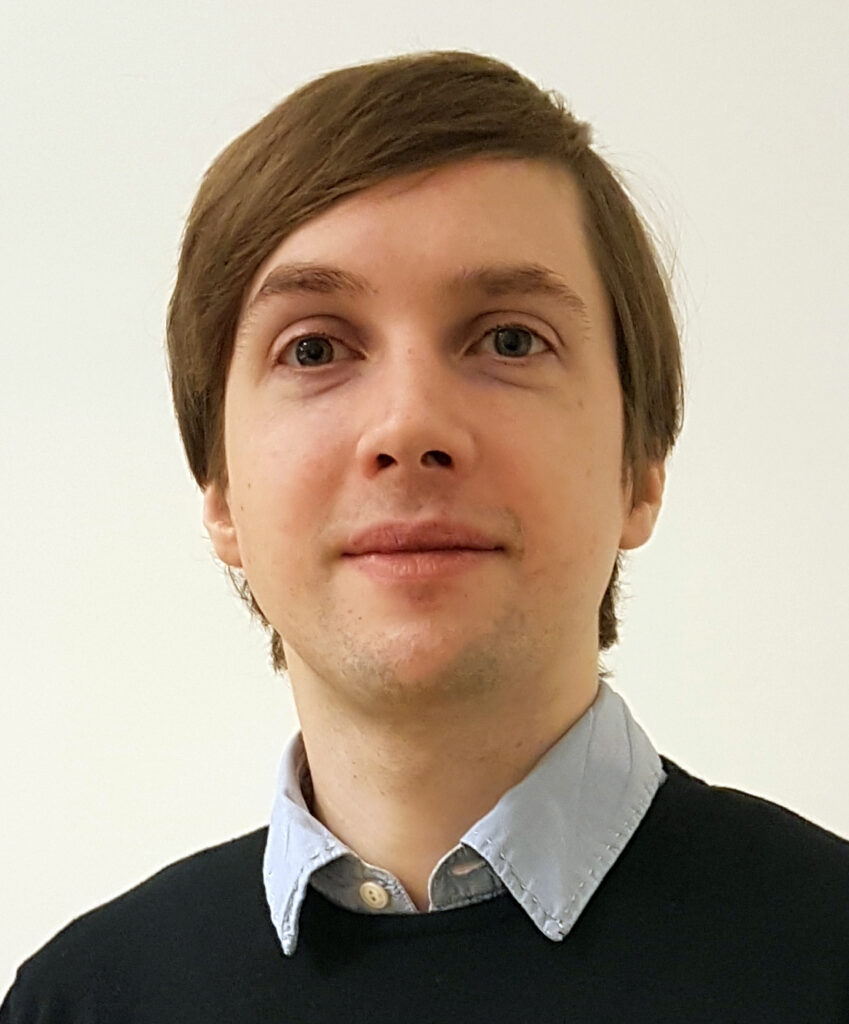

Mag. Sergey Harutoonian (Österreichische Galerie Belvedere)
Sergey Harutoonian studied art history and Romance studies at the Goethe University in Frankfurt am Main and the Université Paris Nanterre. Since June 2022 he has been curator for the contemporary art collection at the Belvedere, where he focuses on forms of digital transformation, identity issues and contemporary culture. From 2018 to May 2022, he was curator in charge of the exhibition programme at the Kunstverein Hannover. In 2022, he took over as acting director of the Kunstverein. In Hanover, he curated the following exhibitions, among others: Kameelah Janan Rasheed (2022), Beyond the Black Atlantic (2020), Artistic Intelligence (2019) and Manuel Graf (2019). He is currently preparing solo exhibitions on Amoako Boafo (2024) and Tamuna Sirbiladze (2024).
Isabel Meyer (Director Digital Platforms, Smithsonian Institution)
Isabel Meyer is the Director for Digital Platforms for the Smithsonian Institution. She joined the Smithsonian’s Office of the Chief Information Officer in 2003 and has over 20 years of proven leadership and experience in the technology and digital media industry.
Isabel has worked in both the public and private sectors with government agencies, museums, start-up companies, financial institutions, and Fortune 500 corporations in the U.S. and internationally. Throughout her career, she has witnessed firsthand the explosive growth and evolution of digital media. Her progressive work experience with systems and digital media technologies spans project, change and productivity management, system analysis and implementation, training, collaborative work groups, application development and test teams, technical sales support, digitization standards and formats (text, images, audio, video), metadata models and industry standards. She skillfully leverages her technical knowledge with her skills in building and strengthening relationships across all levels of an organization to achieve consensus and deliver solutions in complex environments.
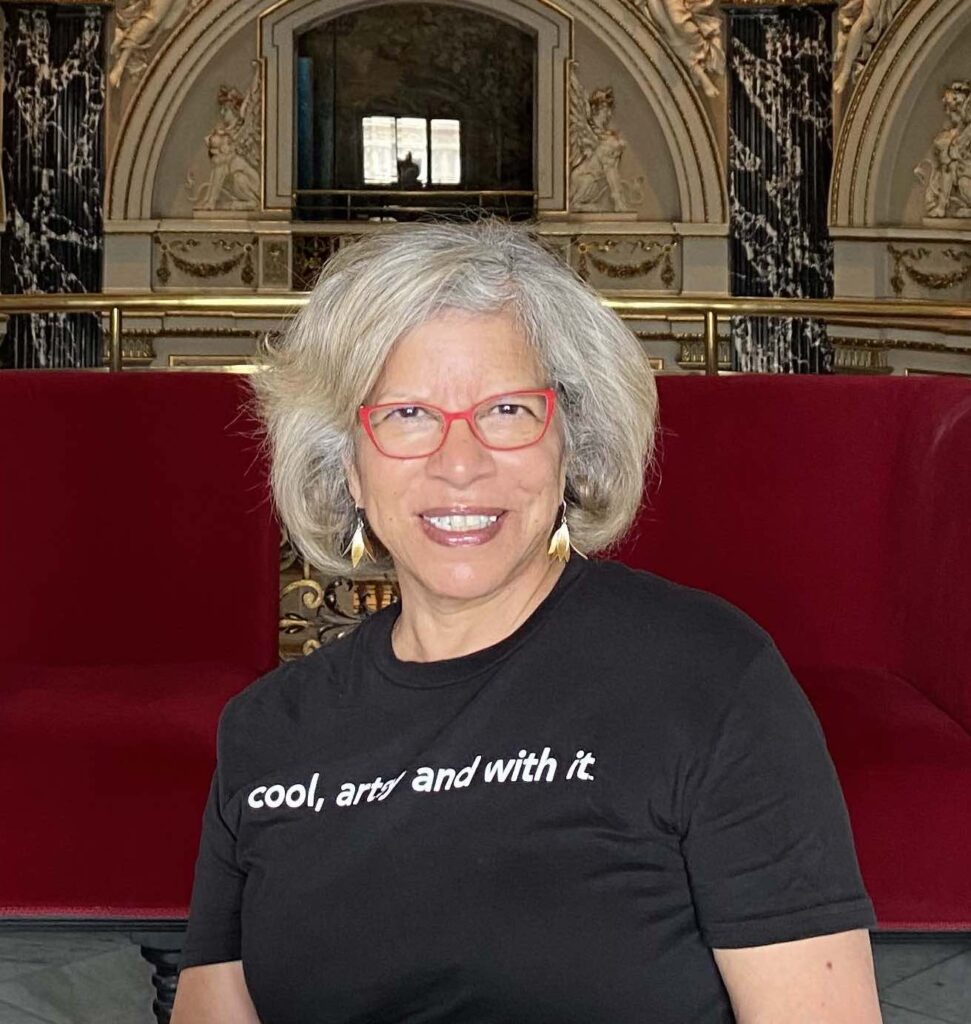

Univ.-Prof. Dr. Anja Grebe (Head of Center for Cultures and Technologies of Collecting, University for Continuing Education Krems)
Anja Grebe has been University Professor of Cultural History and Museal Collection Studies at the University of Continuing Education Krems since 2015, where she heads the Center for Cultures and Technologies of Collecting. She studied French literature, history, and art and media studies at the University of Konstanz, where she received her doctorate in art history in 2000. In 2012, she habilitated at the University of Erlangen-Nuremberg with a thesis on the reception of Dürer in modern times. Since 2001, the art and cultural scientist has worked as a museum and exhibition curator and in cultural education. Teaching assignments have taken her to the universities of Bamberg, Freiburg/Breisgau, and the Berlin University of the Arts, as well as to the University of Würzburg and Peking University, Beijing, as a substitute and visiting professor. At the University for Continuing Education Krems, she directs the master’s program “Collection Studies and Management” as well as the certified programs “Digitales Kuratieren” and “Digitales Vermitteln”. She teaches, researches, and publishes on the theory and history of museums and collections, museums and digitization, issues of cultural transfer, the connection between art and the natural sciences, and international Renaissance art. Since 2022 she has been chair of the Association of Austrian Art Historians (VöKK).
Dr. Eva Mayr (Center for Cultures and Technologies of Collecting, University for Continuing Education Krems)
The doctor of psychology (University of Tübingen) has been a research assistant at the University of Continuing Education Krems since 2008, and has been working at the Center for Cultures and Technologies of Collecting there since 2020. As coordinator, she is currently supervising the EU Horizon Project “In/Tangible Cultural Heritage: Visual Analysis, Communication and Curation”.


Mag. Dr. Florian Windhager (Center for Cultures and Technologies of Collecting, University for Continuing Education Krems)
Studied philosophy, sociology and psychology at the University of Vienna, specializing in philosophy of culture and science. Doctorate in Digital Humanities at the University of Vienna. Studium Integrale for Science Communication and collaboration with the Chair of Cultural and Media Theory at the Academy of Fine Arts and the Academy of Applied Arts Vienna.
Since 2007 research associate, project manager and lecturer at the University of Continuing Education Krems, initially at the Department for Knowledge and Communication Management and at the Department for Arts and Cultural Studies. Lecturer at the University of Graz, the University of Passau and the University of Vienna.
Sen.Art. Mag.art. Dagmar Schink (Managing Director VALIE EXPORT Center _ Research Center for Media and Performance Art)
Dagmar Schink studied at the University of Arts Linz and at the UIAH Helsinki, Finland. For the VALIE EXPORT Center Linz, the internationally oriented research center for media and performance art, Dagmar Schink has been the managing director since 2017. She has been a member of the Cultural Advisory Board of the City of Linz since 2018 and a member of the Advisory Board of the UNESCO City of Media Arts Linz since 2019.


Dr. Viola Rühse, MA (Head of Center for Image Science, University for Continuing Education Krems)
Viola Rühse works as the head of the Center for Image Science and course director at the University for Continuing Education Krems in Austria. She studied History of Art and German Language and Literature at the universities of Hamburg and Vienna and obtained her PhD with a dissertation on Siegfried Kracauer’s film writings. Her current main topics of research – in addition to film theory – are modern and contemporary art, science images, and critical theory. She also works as an artist/photographer and curator. One of her critical essays received the Bazon Brock Essay Award.
Mag. Laura Ettel (Center for Image Science, University for Continuing Education Krems)
Laura Ettel is an artist, filmmaker and researcher. She holds a Master’s degree in Film and Media Studies and was trained in image technology and camera at the Vienna Film Academy and in visual arts at the Academy of Fine Arts in Vienna. She works as a research associate at the University of Continuing Education Krems in the field of archiving media art. As a cinematographer, she works with filmmakers and performers at the intersection of film, performance and visual art. As an artist she works with archive and found footage material.

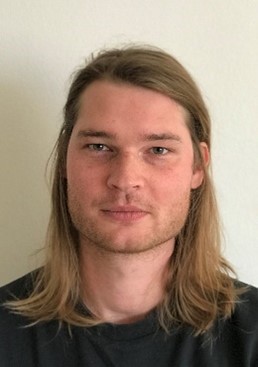
Alexander Wöran, MA BSc BA (Center for Image Science, University for Continuing Education Krems)
Alexander Wöran is a researcher and writer. He studied comparative literature and molecular biology in Vienna. Afterwards he worked at Ars Electronica, where he mainly curated exhibitions. He is currently a research associate at the University of Continuing Education Krems in the Centre for Image Sciences. His focus is on the development of tools and data analysis in the field of digital archiving. As a writer, he writes prose and essays, but also experiments with language in various media.
Dr. Eva Cetinić (University of Zurich)
Eva Cetinić is a researcher at the Digital Society Initiative, University of Zurich, where she is conducting her research project «From Text to Image with AI: How Multimodal Deep Learning Impacts Art and Culture». Before joining DSI, she was a postdoctoral fellow at the Center for Digital Visual Studies, University of Zurich; and a postdoctoral researcher in Digital Humanities and Machine Learning at the Department of Computer Science, Durham University, UK. She obtained her Ph.D. in Computer science from the Faculty of Electrical Engineering and Computing, University of Zagreb in 2019 with the thesis titled «Computational detection of stylistic properties of paintings based on high-level image feature analysis». Her research interest is focused on exploring deep learning techniques for computational image understanding and multimodal learning in the context of visual art and culture.


Priv.-Doz. Dr. Dr. Grischka Petri (Leibniz-Institut für Informationsinfrastruktur, FIZ Karlsruhe)
Doctorate in art history and law, legal assessor’s examination and habilitation in art history, teaching at the universities of Bonn, Cologne, Basel, Regensburg and most recently Tübingen (substitute professorship for Modern and Contemporary Art History, 2022/23), since 2021 collaboration in the NFDI4Culture Legal Helpdesk at FIZ Karlsruhe (Leibniz Institute for Information Infrastructure).
Freya Schlingmann (Head of central project management, museum4punkt0, Stiftung Preußischer Kulturbesitz, Berlin)
Freya Schlingmann studied German, rhetoric and political science in Tübingen and London. After her studies, she worked as a project and account manager in an agency for digital brand management. In 2014, she moved to the SCHIRN KUNSTHALLE FRANKFURT and drove the digital strategy there from the marketing department. From 2016, she was responsible for the strategy, expansion and further development of digital projects and products at the Städel Museum. In 2021, she took over the central project management of the joint project museum4punkt0, in which museums from all over Germany develop and test digital mediation offers in 27 sub-projects. Together, the partners exchange experiences and share their knowledge with the German-speaking cultural landscape.


Mag. Frauke Kreutler (Digital Collection Management, Wien Museum)
Frauke Kreutler, born 1970 in Klagenfurt, a trained photographer, studied art history in Vienna and Dublin. 2001-2003 Collaborator on the digitisation project in the photo collection of the Albertina Vienna. Since 2003 curator and since 2008 head of the Digital Collection Management department at the Wien Museum. She manages the digitisation of the Wien Museum’s collections and worked on major projects such as the relocation of the collections to the Himberg depot. Publications on photo- and cultural-historical topics of 19th and 20th century Austrian history.
Evi Scheller, BSc MAS (Digital Strategies, Wien Museum)
Evi Scheller, born 1982 in Munich, studied architecture in Berlin and exhibiting/curating/management at the University of Applied Arts Vienna. In addition to her work at steirischer herbst, the Brno House of Arts or the Market for Useful Knowledge and Non-Knowledge, she was also involved in the mediation projects of trafo.K as a designer. She has been working at the Wien Museum since 2012 and has been developing the museum’s digital strategies since 2018. She is responsible for projects such as the online collection, crowdsourcing and the digital guide through the new permanent exhibition.


Prof. Dr. Maximilian Schich (Tallinn University)
Maximilian Schich is an art historian, multidisciplinary researcher and academic consultant, currently mainly a professor for cultural data analysis at Tallinn University in Estonia. His aim is to understand the nature of cultural interaction via a systematic combination of critical and creative aesthetics, qualitative hermeneutics, quantitative measurement and computation. Ongoing research builds on a background in art history (diss. HU-Berlin & Bibliotheca Hertziana), network science (BarabásiLab), computational social science (ETH-Zurich), and professional experience in cultural “database pathology.” Schich’s dissertation on “Reception and Tradication” (Biering & Brinkmann 2009) is considered a seminal contribution to network analysis in art research. In 2014, “A Network Framework of Cultural History” in Science Magazine and the Nature video “Charting Culture” made global impact. From 2013 to 2020, Schich was Associate Professor in Arts & Technology and a founding member of the Institute of Art History at UT Dallas, from where he moved to Tallinn in 2020. Schich leads the CUDAN ERA-Chair Project for Cultural Data Analytics there, currently funded by the European Commission with 2.5 million euros. Current collaborations are primarily dedicated to understanding different types of cultural interaction as well as empirical aesthetics. One aspect of this is museum collections research.
Tillmann Ohm (Tallinn University)
Tillmann Ohm is a creative technologist with a focus on curatorial systems. Through his academic research and his company ARCU.technology, he develops experimental tools and methods for analyzing and interacting with digital collections. Ohm holds a diploma in Fine Arts from Bauhaus University Weimar and is currently a PhD Research Fellow in Cultural Data Analytics at Tallinn University in Estonia.


Saskia Scheltjens, MA MA (Head of Research Services Department, Chief Librarian of Rijksmuseum Research Library, RIJKSMUSEUM)
Saskia Scheltjens (BE/NL, 1970) studied Literature & Linguistics and Information – & Library Science at the University of Antwerp in Belgium. She is an experienced information manager who has worked in the academic and museum world in Belgium and the Netherlands, often initiating and leading change. Currently, she is Head of the Department of Research Services of the Rijksmuseum and Chief Librarian of the Rijksmuseum Research Library. The department is responsible for all information and data about the collection and the organisation. Together with a team of about 50 people, she is working on tools and services for researchers on top of extremely hybrid, rich and open collection data. She is fascinated by the interdisciplinary possibilities and responsabilities of digital research and a strong advocate for OPEN and FAIR collection data and – systems within the digital cultural heritage world.
Dr. Luise Reitstätter (Director Laboratory for Cognitive Research in Art History (CReA), University of Vienna)
Luise Reitstätter is a cultural scientist with a transdisciplinary background from communication studies (MA), sociology and cultural studies (PhD) as well as art history and museology (habilitation). After working in the international art scene – i.e., for documenta 12 and the Austrian Pavilion at La Biennale di Venezia 2008 and 2009 – she shifted her work focus to academia. Her research and teaching deals with practices of modern and contemporary art, museum and exhibition studies as well as empirical methods in social research. Currently, she works as the head of the Laboratory for Cognitive Research (CReA) at the Department of Art History at the University of Vienna.


Carola Korhummel, BA MA (Laboratory for Cognitive Research in Art History (CReA), University of Vienna)
Carola Korhummel is a museologist. Trained in literature, art and media studies (BA) at University of Konstanz and Boğaziçi University in Istanbul, she specialized in art history and museology (MA) with a double degree from Heidelberg University and École du Louvre in Paris. After working for Kunstmuseum Stuttgart and as a research fellow at Werkbundarchiv in Berlin, she currently works at the Laboratory for Cognitive Research in Art History at the University of Vienna. Her research and teaching focuses on the intersections of everyday culture, consumer aesthetics and digital art. In her PhD project, she investigates the art museum of the 21st century as an emotional commodity.
Seda Pesen, BA MA (Laboratory for Cognitive Research in Art History (CReA), University of Vienna)
Seda Pesen is an art historian and author. Trained in art history and comparative literature at Rheinische-Friedrich-Wilhelms University of Bonn (Germany), she continued her studies in the master’s programme “Critical and Curatorial Studies” at academy for fine arts Städelschule and Goethe University Frankfurt (Germany) with a focus on aesthetic theory, art theory and colonial cultural history. Currently, she works as a researcher at the Laboratory for Cognitive Research in Art History at the University of Vienna within the “The Museum Gaze” project. In her PhD project, she focuses on subjective configurations of the gaze, aesthetics judgements and their entanglements.

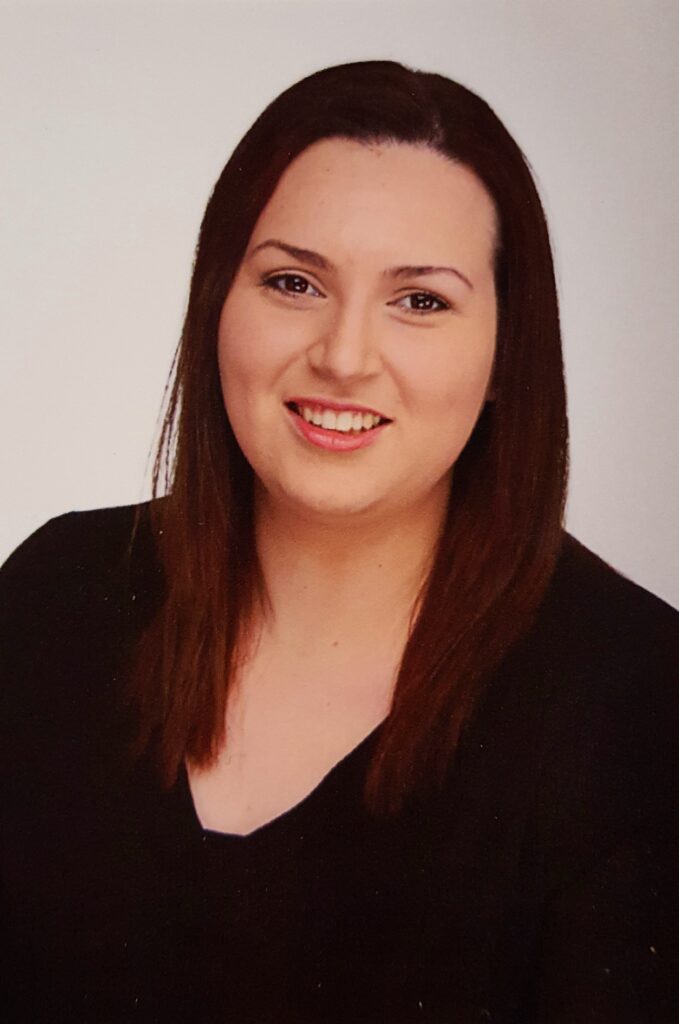
Enkeleda Thaqi, B.Eng. MSc (TUM School of Social Sciences and Technology, Technical University of Munich)
Enkeleda Thaqi is a computer scientist. Her academic background includes a Bachelor of Engineering in Print and Media Technologies, specializing in Print and IT, from the Hochschule der Medien in Stuttgart (Germany), followed by a Master of Science in Media Informatics from the Eberhard Karls University in Tübingen (Germany). She recently joined the team of the chair for Human-Centered Technologies for Learning at the Technical University of Munich, where she is pursuing her PhD. Her research is part of the “Museum Gaze” project and includes the automation of the analysis of eye movement on paintings and sculptures. Her research interests are primarily centered around the areas of eye tracking, scanpath analysis, computer vision, and human-computer interaction.
Participants

Leonie Boer, MA (LWL-Museum für Kunst und Kultur, Münster)
Leonie Boer grew up deep in the west of Germany, in the vibrant Ruhr area, and moved to Düsseldorf to study. After gaining diverse experience in the fields of art education, museum education, press and public relations and monument conservation, she was drawn to a large art museum, the LWL Museum für Kunst und Kultur in Münster (Germany). Since then, she has been pushing digitization in the museum with a lot of imagination, even more patience, and a pinch of tenacity, and is just warming up for future projects.
Dominik Bönisch, MA (Ludwig Forum für Internationale Kunst, Aachen)
Dominik Bönisch studied Cultural Studies and Aesthetic Communication at the University of Hildesheim (Germany) and the Moholy-Nagy University of Art and Design Budapest. Currently, as scientific project manager of “Training the Archive” at the Ludwig Forum für internationale Kunst in Aachen (Germany), he is questioning the connections between AI and museum collections. His research interests include the impact of new technologies on art and on museum collections and exhibitions. Bönisch, who also lectures on this subject at the Düsseldorf University of Applied Sciences, lives and works in Düsseldorf and Aachen.


Insa Brinkmann, MA (Museum für Kunst und Gewerbe Hamburg)
Insa Brinkmann studied Art History, Cultural Studies and Italian in Berlin and Florence. After working in Berlin in art auction houses, in an art foundry, at the Kulturstiftung der Länder and in art education at the Staatliche Museen zu Berlin, she has been a research assistant in the Digital Inventory project at the MK&G Museum für Kunst und Gewerbe Hamburg since 2012 and project manager there since 2020. She oversees the retro-inventory and digitization of the museum’s holdings as well as the editing of the MK&G Sammlung Online (Online Collections).
Joris Burla, BA MA (Museum Rietberg, Zurich)
Joris Burla (28.08.1991 in Zurich, CH) lives and works in Zurich, CH as a collection documentalist at the Museum Rietberg, Zurich. After completing his secondary education with a focus in the arts, he studied Art History, minoring in Mathematics, at the University of Zurich. In his Master’s degree, he specialized in art history in a global context. At the Museum Rietberg, he is confronted with the task of recording, describing, and communicating art and cultural assets from the most diverse regions of the world in a comprehensive digital concept.


Dr. Emily Joyce Evans (Neue Nationalgalerie, Berlin State Museums)
Emily Evans studied Art History, German and Russian at Smith College, the University of Hamburg, and the University of Illinois. Prior to joining the Neue Nationalgalerie, she worked at the Museum Ludwig (Cologne), on the Manifesta 10 biennial and at De Gruyter publishers. Her publications include a comprehensive collections catalog (1905–1945) for the Nationalgalerie in Berlin, exhibition catalogs, articles, and the forthcoming Bloomberg Art Markets (where she was editor). At the Neue Nationalgalerie she is responsible for research on 20th-century art and its publication online.
Ulrike Fladerer (Städel Museum, Frankfurt a. Main)
After studying Art History and Information Science in Frankfurt am Main, I have been working on the Städel Museum’s digital collection since 2013. Since 2018, I have taken over the full-time administration of the collection database and am responsible for data quality and networking. I also work on the content and technical development of digital formats for the Städel and deal with strategies to enable and expand access to preserved knowledge.


Mag.art. Jee-Hae Kim, BA (Hamburger Bahnhof – Nationalgalerie der Gegenwart, Berlin State Museums)
Jee-Hae Kim is a collection researcher at the Hamburger Bahnhof – Nationalgalerie der Gegenwart (Berlin), responsible for the research, scientific cataloging, and strategic management of the collection’s works of media art. She studied Art History, Philosophy as well as Theatre, Film and Television Studies at the Seoul National University in Seoul/South Korea and at the University of Cologne. Her current research interests include interdisciplinary and collaborative methods for the preservation of cultural assets as well as innovative formats of knowledge management and transfer.
Mag. Peter Kloser (KHM-Museumsverband, Vienna)
Peter Kloser joined the KHM-Museumsverband (Austria’s biggest museum group) in 2010, where he has headed the Museum Database Department since 2020. Before that, he worked for five years in the same function in the cultural department of the Province of Lower Austria and in the inventory project of the Archdiocese of Vienna respectively. The company Kloser & Pointner Kunstverwaltung recorded and digitized, among other things, the cultural-historical inventory of the Bundesimmobiliengesellschaft (BIG, Federal Property Association).


Mag. Dr. Katja Schumann (Staatliche Kunstsammlungen Dresden)
Katja Schumann (*1977, Dresden), art historian. Studied Art History, German Language and Literature/Media Studies and Education at the TU Dresden / University of Vienna with doctorate, postgraduate studies in Culture & Management, Hermann Krone Prize 2004, participation in scholarship programs in Sweden, Austria, Switzerland and China, freelancer at the Goethe-Institut and the Deutsche Fotothek, SLUB Dresden (Saxon State Library – Dresden State and University Library), curatorial and jury activities, since 2008 scientific editor in the database project “Daphne” at the Staatliche Kunstsammlungen Dresden (Dresden State Art Collections).
Tabea Schwarze, BA MA (Staatliche Kunsthalle Karlsruhe)
Since 2015, I have been professionally involved with the opportunities for museums provided by digitization. The development of digital strategies to arouse interest and enthusiasm for art and museum contents and, above all, to make them accessible to a broader public are always at the center of my work. My studies in Media Culture (B.A.) as well as Cultural Analysis and Cultural Mediation (M.A.) provide me with the basis for this, in addition to numerous practical experiences. I have been working in Digital Management at the Staatliche Kunsthalle (State Art Gallery) Karlsruhe since October 2020.


Maike Teubner, MA (Kunstsammlung Nordrhein-Westfalen, Düsseldorf)
Maike Teubner is an art historian and qualified designer. As a consultant for the online collection and internal digital formats, she is currently leading the project for a new digital presentation of the collection at the Kunstsammlung Nordrhein-Westfalen in Düsseldorf. At the Neues Museum – Staatliches Museum für Kunst und Design (State Museum of Art and Design) in Nuremberg, she worked on the scientific planning of international exhibitions. At the Friedrich-Alexander-University Erlangen-Nuremberg she was a lecturer for digital art history. Her dissertation is dedicated to exhibition research, among other topics.
Ann-Kathrin Seyffer, MA (Schweizerische Nationalbibliothek, Bern)


Mgr. Petr Tomášek, PhD (Moravská galerie v Brně, Brno)
The Czech art historian completed his doctoral studies at the Faculty of Philosophy of Masaryk University in Brno in 2017 with a dissertation on the art collection of the Princes of Salm-Reifferscheidt. He has worked for the Moravian Gallery since 2005, currently as curator of the Old Masters and 19th century painting and sculpture collections. He is also a specialist in nineteenth-century art. He has organized several major exhibition projects, most recently the Moravian Picture Gallery (1817-1961) in 2022-2023. Professionally, he specializes in the history of private and institutional collecting and 19th century painting.
Christa Zahlbruckner, BA MA (Museumsmanagement Niederösterreich GmbH, St. Pölten)
Christa Zahlbruckner studied German Philology and Austrian Studies at the University of Vienna. In addition to further training in the museum sector, she has worked in particular on topics of digitization and digital collection management. Since 2016, she has been coordinating international projects at Museumsmanagement Niederösterreich (Lower Austria) and helped set up the DIP.noemuseen database and the DIP online catalog. As coordinator of the DIP portal, she advises regional museums and leads the digitization projects of Museumsmanagement Niederösterreich (Lower Austria).

